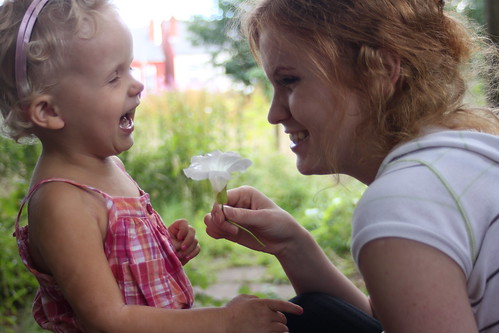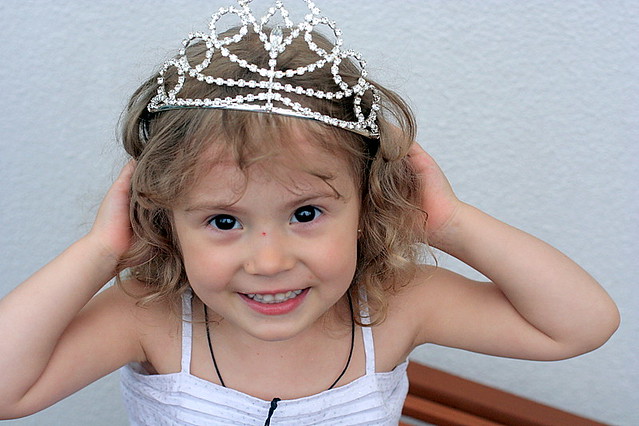|
In the enchanting world of lullabies, where melodies are meant to soothe and cradle the innocent slumber of our little ones, there exists a shadowy corner. Here dwell the eerie and heart-wrenching tunes that have been passed down through generations. These are the lullabies that defy the conventional, daring to venture into the realm of the tragic, the horrific, and the profoundly sad.
In this exploration of "Tragic Kids Lullabies," we will journey through the mysterious and enchanting world of these haunting melodies. We'll uncover the stories behind two iconic lullabies, "Ani Couni" from the Arapaho Natives and the infamous "Rock-A-Bye Baby." Additionally, we'll introduce you to three more dark lullabies that have woven tales of sorrow and resilience. Along the way, we'll offer valuable insights and tips on how to use these haunting tunes to teach resilience and empower our children to navigate life's challenges with courage and grace. Ani Couni: The Haunting Whisper of the Arapaho Natives Allow the mesmerizing notes of "Ani Couni" to transport you to the vast landscapes of the Arapaho Natives, where this haunting lullaby was born. "Ani Couni" is a powerful, ancient lullaby that carries the weight of history in its mournful melody. The Arapaho people, native to the plains of North America, used this lullaby to teach their children about resilience and the harsh realities of life. Its lyrics speak of a child lost in the wilderness, facing danger, starvation, thirst, and darkness, yet finding the strength to survive. Embrace "Ani Couni" as a tool to teach your child about courage and resourcefulness. Play it during bedtime, and as your child drifts into slumber, share stories of bravery and survival to inspire their dreams. Start playing "Ani Couni" tonight and encourage your child to face their fears, just like the brave Arapaho children did. Rock-A-Bye Baby: The Ominous Lullaby of Cradle's Edge You've surely heard the familiar strains of "Rock-A-Bye Baby," but do you know its dark origins? This well-known lullaby has a chilling history. Its lyrics describe a baby cradled in a treetop, at the mercy of the wind and the bough's inevitable fall. The true story behind this lullaby is one of survival, as mothers sang it to remind their children of life's precarious nature. Embrace the darkness of "Rock-A-Bye Baby" to instill in your child the importance of resilience and adaptability. Use this lullaby as an opportunity to discuss life's uncertainties and how to navigate them. Tonight, when you tuck your child in, sing "Rock-A-Bye Baby" with a gentle yet firm tone. As you do, tell them stories of overcoming adversity, encouraging them to face life's challenges with determination. Three More Haunting Lullabies for Brave Hearts1. "Hush Now, My Darling" The tender yet haunting melody of "Hush Now, My Darling" will beckon you into a world of bittersweet lullabies. This lullaby's poignant lyrics narrate the tale of a lost soul seeking solace in the night's embrace. The melody's melancholic notes offer a gentle reminder that even in darkness, there's beauty to be found. Use "Hush Now, My Darling" to teach your child about finding comfort in difficult times. Discuss the significance of seeking beauty in unexpected places. Incorporate "Hush Now, My Darling" into your nightly routine, creating an atmosphere of solace and reflection. 2. "Moonlit Lament" Let the haunting strains of "Moonlit Lament" draw you into a world of moonlit mysteries. This lullaby's haunting melody weaves a tale of a moon that listens to the woes of the world. Its lyrics speak of whispered secrets and hidden fears, reminding us that even celestial bodies can empathize with our struggles. Use "Moonlit Lament" to encourage your child to share their thoughts and fears. Discuss the power of expression and the support that can come from unexpected sources. Sing "Moonlit Lament" under the night sky, fostering a sense of connection between your child and the world around them. 3. "Echoes of Dreams" The ethereal notes of "Echoes of Dreams" beckon you to explore the enigmatic realm of dreams. This lullaby's enchanting melody captures the essence of dreams, from whimsical fantasies to poignant reflections. Its lyrics evoke a sense of longing and introspection, reminding us that dreams hold a mirror to our innermost desires. Use "Echoes of Dreams" to spark conversations about aspirations and self-discovery. Encourage your child to ponder their own dreams and goals. Make "Echoes of Dreams" a part of your bedtime routine, creating a space for your child to explore their thoughts and ambitions. Harnessing the Power of Tragic Kids Lullabies Now that we've explored the haunting stories behind "Ani Couni," "Rock-A-Bye Baby," "Hush Now, My Darling," "Moonlit Lament," and "Echoes of Dreams," let's dive into how you can use these lullabies to empower your child: 1. Create a Ritual Establish a bedtime ritual that includes these lullabies. Consistency and routine can bring a sense of security to children, helping them better manage change and uncertainty. 2. Storytelling Accompany the lullabies with stories of bravery and survival. Share tales of real-life heroes and heroines who have overcome adversity, reinforcing the message of resilience. 3. Encourage Questions Create an environment where your child feels comfortable asking questions. Use the lullabies as conversation starters to discuss their fears and concerns, helping them build emotional intelligence. 4. Empower with Words Teach your child the meaning of the lyrics. Explain the metaphorical elements in a way they can understand. This will empower them with a deeper understanding of life's complexities. 5. Dream Exploration Encourage your child to share their dreams in the morning. Discuss how the lullabies may have influenced their dreams and use this as a platform for open dialogue. Conclusion: Embrace the Darkness for a Brighter Future In the world of lullabies, where sweet dreams are the norm, we've ventured into the depths of tragic kids lullabies. These haunting melodies, "Ani Couni" and "Rock-A-Bye Baby," have the power to teach our children valuable lessons about resilience, adaptability, and the unpredictable nature of life. As parents, it's our duty to equip our children with the tools they need to face the world's challenges boldly. By introducing these lullabies into their bedtime routine and weaving in stories of triumph over adversity, we not only prepare them for life's uncertainties but also nurture their capacity for courage. Take action today. Embrace the darkness of tragic lullabies and illuminate the path to a brighter, more empowered future for your child. Together, let's cradle their dreams in the arms of resilience. Don't wait. Sing the haunting tunes tonight and watch as your child blossoms into a confident and courageous individual, unafraid of the world's uncertainties. Their future is in your hands, and with the power of tragic kids lullabies, it's a future filled with strength and resilience.
0 Comments
Positive Parenting Tips: How to Show Kids They Matter
For whatever reason, kids can often feel as though they are the odd one out - that no one understands them. You know full well that your kids matter. Show them just how much with some positive parenting. Most parents do care and want their kids to know that, but some just aren't sure how to put feelings into action.
Give them choices. Although you may want everything to go a certain way, kids should be a part of family decisions, too. Sometimes - maybe many times - not everyone is going to agree on things. Let the kids decide what to do whenever possible. This shows them their thoughts matter to you. When kids know they matter, they may be more inclined to respect your wishes for decisions you must make. Respect their opinions. Even when their opinions differ from yours - and they will sometimes - respect what your kids think. Things don't always have to go their way. But let them be individuals. Sooner or later your child is going to grow up. He needs to know his voice matters to be respected in the world outside your home. Even inside the home, your child's opinions and insight should count. Give them freedom. There are limits to this for safety reasons, of course. But give your kids some freedom. They don't need to be right next to you at every moment. Trust them to do age-appropriate tasks without your assistance. It can be a parental instinct to be a mother hen or a father lion. That's part of being a parent, but if we don't let them do some things for themselves, they will never learn. Let them teach you about their favorite things. You may be old and wise, but kids have so much to teach us adults. Listen. Let your child know that her interests are important to you. Sometimes what kids are interested in don't line up with those of their parents. Still, you need to be supportive of your child's individuality. Don't try to force your interests on him and don't attempt to keep him from his unless they are harmful in nature. Show affection even when they misbehave. Even when kids misbehave, they still deserve your love. Discipline must take place. But that doesn't mean a hug isn't in order. In fact, that may be exactly what the doctor has ordered. Show your child his feelings matter to you by still showing affection, even in difficult times. *I originally published this via Yahoo Contributor Network Does your teen need a boost of self-worth? Even if you answered no, it's always good to immerse teens in activities that help raise their self-confidence levels. The teenage years can be difficult to get through. But a healthy dose of self-esteem can play a vital role in helping them get through all the ups and downs of hormones and life itself. Self esteem isn't always something that comes naturally for everyone and even when it does, it's still great to nurture it. By consistently taking advantage of naturally occurring events and activities, your teens' self-esteem can shine.
Teach your teen a new dance or let them show you. Learning and conquering a new skill is a great confidence booster. You may think your teen is embarrassed to dance with you. But the truth is, most teens look up to their parents and want to please them. Showing you the dance techniques can be mastered is a simple and fun way for your teen to feel accomplished. Practice this often for optimal results. Dancing isn't really my thing. But one of my teens loves it. So I frequently watch her perform all the great new moves she learns and invents. Since I am not much of a dancer, I don't usually dance along. But she knows myself and the entire family love watching her perform. Let your teen help with a meaningful task. Trusting your teen with something that you normally do can be good for enhancing self worth. It's a great feeling knowing someone trusts you with an important task. Think about how you would feel if your boss put you in charge of something normally done by a person in a higher position than you. That's exactly how your teen will feel. It might be a little overwhelming at first. But imagine how great your teen will feel when the task is accomplished. Give your teen more responsibility and make trust obvious. Teens need preparation for when they become adults. This is the perfect age to give them more responsibility. Teach them about employment and how to apply for jobs. Summer and after-school positions are great for this stage. Even if your family does not need the extra money, this can be an important life lesson. Other responsibilities may include work around the house, grocery shopping, helping figure out the family budget, and other household responsibilities. Self worth often comes from successfully performing both simple and complex tasks. Compliment your teen when it's warranted. If you notice that your teen has a cute outfit on or a nice hairstyle, don't be afraid to say so. You may think it sounds cheesy. But truthful compliments can help your teen feel good about self image. Pay attention to not only your teen's appearance but also any completed tasks. Whenever any of my kids does something nice without me asking, I make sure I thank them and let them know how much it means to me. Be sure not to to overdo it or your compliments won't be taken seriously. Always be genuine and honest with your words. Let your teen work or volunteer. Serving others is an excellent way to help your teen feel good inside. There is no other feeling like the one found inside when giving to others. Aside from that, each goal or task your teen completes will help give a sense of accomplishment. My teen daughter is looking forward to the day when she can become an official volunteer at a local shelter. Until then, we spend a great deal of our own time visiting the animals and giving them affection. The kids feel so great knowing they have touched the lives of so many animals. *I originally published this via Yahoo Contributor Network
by Kel McCollum, Health News Expert
For the past couple of decades, an erroneous psychological theory has dominated the way that not only schools and teachers, but also parents and family members, approach children. The “Self-Esteem Movement” dates back to 1969, but it wasn’t until 1999 that psychologists and researchers began to realize one critical flaw in the kind of thinking perpetuated by the movement itself: it did not work.
While self-esteem has always been a crucial element of the success of any child, the movement that sought to increase self-esteem in the next generation of adults by showering them with praise and telling them that they were “little princesses,” “geniuses,” and “winners” did little to nothing in terms of making children feel more comfortable and confident about themselves. In fact, this kind of excessive outward praise proved to be more debilitating for many students than the lack of self-esteem itself. 2010 Ohio State University study found that today’s college students crave this kind of praise above all else, even more than sex or money. The study was published in the Journal of Personality, and the results indicated that many of today’s young adults have a greater sense of entitlement than ever before. Jean Twenge, a fellow psychologist at San Diego State University, expands upon the results of similar studies and what it means to society in the book “Generation Me.” "What you really see is . . . it's this kind of empty self-esteem where you're supposed to feel special just for being you, that everyone's a winner and we should all feel good about ourselves all the time, which kind of ignores that self-esteem is usually based on something,” Twenge says. All of this information begs the question of exactly how parents can actually help boost their child’s self-esteem. While praise does not actually help add to a child’s sense of self-worth, accomplishing things and achieving personal goals does. Achievement and goals are defined differently for each child, and for each age group, but there are two main things that parents can do to help: finding activities that offer the opportunity for achievement, and providing guidance and encouragement. For younger kids, a sense of accomplishment could be derived from the completion of a craft, a coloring page, or even a board game. Sports offer greater self-confidence for children of all ages, and self-esteem is could also be derived from a good grade or exceptional performance in school for school-aged children. But goals should not all be centered around one type of activity. Psychologists emphasize that social activities, settling disagreements, and making friends are equally important. Children must learn effective social and relationship skills as well as intellectual and athletic skills. SOURCES: Roy F. Baumeister, “Does High Self-Esteem Cause Better Performance, Interpersonal Success, Happiness, or Healthier Lifestyles?” Journal of the Association for Psychological Science. http://psi.sagepub.com/content/4/1/1.abstract Maureen Salamon, “For College Students, Praise May Trump Sex and Money,” Business Week. Richard Lee Colvin, “Losing Faith in the Self-Esteem Movement,” Los Angeles Times. http://articles.latimes.com/1999/jan/25/news/mn-1505 Michael Hurd, “The Error of the Self-Esteem Movement,” Capitalism Magazine.
Kel McCollum is a full-time freelance writer with over five years of experience in writing for the web and search engine optimization best practices. She also has extensive experience as a working journalist and has produced numerous articles for print publications in the area of health, travel, self-improvement, and business topics.
Ms. McCollum works to help small business owners and internet marketers make the most of the Internet by using keyword-optimized content that drives traffic and increases conversions. She also provides information, resources, and mentoring to other freelancers and aspiring writers through the Writer Reality website. |
Instant Download On Order
Categories
All
Archives
May 2024
|
- Brand Shamans
- Brand Healing
- Inner Healing
-
INTENT-SIVE NATURE
- Content & Brand Elevation
- Healing Jewelry & Talismans
- Bath, Beauty, & Self-Care
- Healing Sessions
- Rituals, Herbs, & Altar Supplies
- Gawwwdess Baby Boutique
- Soul Flame Gifts
- Yoga & Meditation
- Books & Media
- Education & Homeschool Resources
- Home, RV, & Decor
- Clothing
- Pets
- Custom Orders
- Monthly Subscription Boxes
- October Festivals
- FLOW-Key Parenting
- About & Contact
- RV, Nature, & Travel Shamans
- Souls Within
- Life & Home
- Heart 'N Mind Homeschool
- The Homeschooling Mommy
- Books & Authors
- Speak Up!
- Pawsitive Pet Parenting
- Manifesterz
- Gifts In Minutes
- Brand Shamans
- Brand Healing
- Inner Healing
-
INTENT-SIVE NATURE
- Content & Brand Elevation
- Healing Jewelry & Talismans
- Bath, Beauty, & Self-Care
- Healing Sessions
- Rituals, Herbs, & Altar Supplies
- Gawwwdess Baby Boutique
- Soul Flame Gifts
- Yoga & Meditation
- Books & Media
- Education & Homeschool Resources
- Home, RV, & Decor
- Clothing
- Pets
- Custom Orders
- Monthly Subscription Boxes
- October Festivals
- FLOW-Key Parenting
- About & Contact
- RV, Nature, & Travel Shamans
- Souls Within
- Life & Home
- Heart 'N Mind Homeschool
- The Homeschooling Mommy
- Books & Authors
- Speak Up!
- Pawsitive Pet Parenting
- Manifesterz
- Gifts In Minutes





 RSS Feed
RSS Feed





